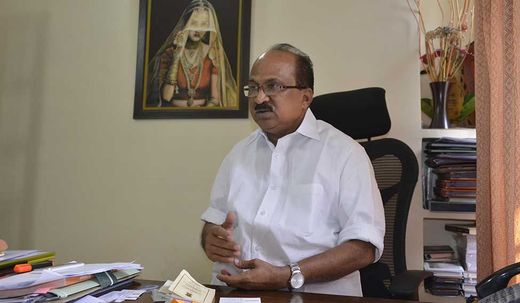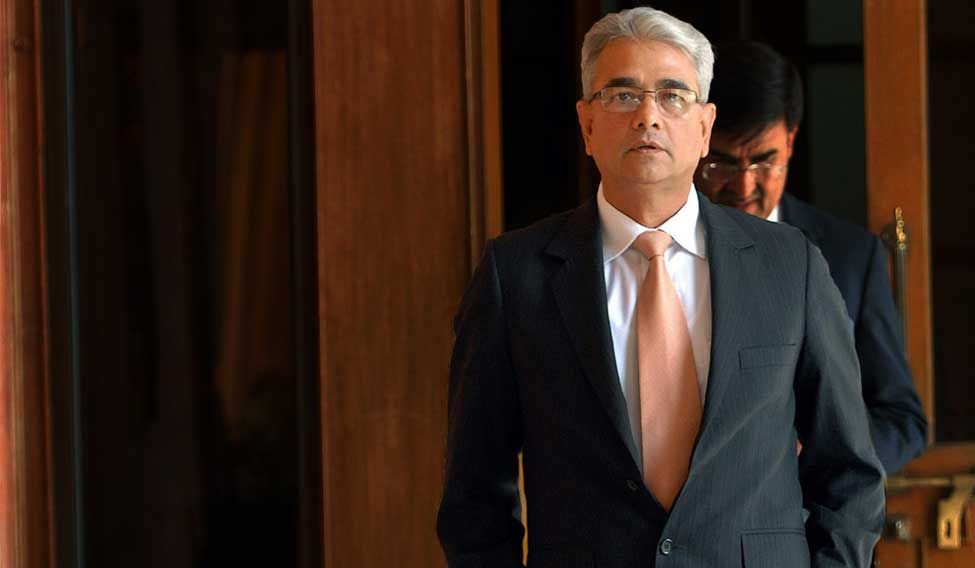“Comparing the articles about the Supreme Court and the articles relating to the Auditor General, I cannot help saying that we have not given him the same independence which we have given to the judiciary, although I personally feel that he ought to have far greater independence than the judiciary itself.”
---B.R. Ambedkar on the Comptroller and Auditor General
Ambedkar’s arguments in the Constituent Assembly about the CAG speak volumes about the desire of the founding fathers to keep the nation's auditor absolutely independent, even more than the judiciary. But 65 years after India adopted its Constitution, a move seems under way to dilute the powers of the CAG. The idea was discussed during a meeting of the chairpersons of the Public Accounts Committees (PACs) of state legislatures, which was organised by the PAC of Parliament. In a two-day meeting held in Delhi, 20 proposals were put forth about the critical issues of accountability and appointment process of the CAG.
One of the proposals is to amend the Constitution and the 1971 act under which the CAG has been formed, to make it answerable to Parliament and, by extension, to the government and the ruling party. BJP MP Nishikant Dubey, who was appointed head of a PAC subcommittee which would look into the matter, said the PAC should be consulted before the CAG was appointed and that the CAG should be answerable to Parliament. “Today, the CAG is not accountable even for lapses and irregularities in its audit reports.” Dubey said the subcommittee would examine all issues and was likely to recommend amendments to the CAG Act of 1971 and bring CAG under the jurisdiction of Parliament.
The panel, however, does not appear to be unanimous in its views. Another member of the subcommittee, Bhartruhari Mahtab of the Biju Janata Dal, said the powers and functions of the CAG should not be disturbed. By making the CAG accountable to Parliament through the PAC, “we will be limiting our own powers,” he said. “The PAC’s role is not limited to scrutinising the CAG’s audit reports; rather it plays a variety of roles, which also include making judicial views when there is a difference between the CAG and the government. In such cases, the PAC’s view becomes final and both parties have to accept it. If the CAG is made accountable to the PAC, the parliamentary panel will become party to the audit process and will lose the right of being an arbitrator,” said Mahtab.
Retired CAGs seem to agree with him. “Aping provisions in the constitutions of Great Britain and Australia is totally misplaced,” said former CAG Vinod Rai, who had unearthed several scams. “The founding fathers had done a detailed exercise of comparing provisions of different constitutions of the world and had decided otherwise. So now it is neither advisable nor desirable,” he said.
A senior CAG official said he supported Rai's views since the parliament was supreme in the UK and Australia, while in India the Constitution had the final say. “In the UK, it is the legislature which plays the role of the highest judiciary and audit. There, we find judicial lords and auditor lords,” he said. Unlike in the UK and Australia, acts of Parliament are subject to judicial review in India, and the Supreme Court has the right to declare any law null and void if it contravenes the provisions of the Constitution. Moreover, in those countries, MPs are not constrained by anti-defection laws, which gives them freedom of action independent of their party leaderships. In India, the anti-defection law makes MPs captives of their parties and leaders.
Changing the process of appointment of the CAG could be an infringement upon the powers of the executive, as the CAG is appointed by the president on the advice of the council of ministers, headed by the prime minister. The appointment issue turned into a legal tussle in 2013, when Shashi Kant Sharma was appointed by the Manmohan Singh government as the new CAG. The opposition parties objected to Sharma's appointment saying that he was defence secretary prior to taking charge as CAG and he could be auditing defence deals done during his tenure in the defence ministry. But the Supreme Court dismissed a public interest litigation on the issue saying the appointment was the prerogative of the executive.
While Mahtab opposed making the CAG accountable to Parliament, he seemed open to a change in the appointment process. “A proposal is already pending with the government to make it mandatory to consult the PAC chairman before appointing the CAG,” he said. Rai, however, is opposed to getting the PAC chairman involved in the process as “he/she is appointed as PAC chief only for a year.” He said the appointment of the CAG should be done in a manner similar to the appointment of the Central vigilance commissioner. It would mean forming a committee comprising the prime minister, home minister and the leader of opposition in the Lok Sabha to select the CAG.
There are, however, indications that attempts to dilute the powers and functions of the CAG will lead to major political opposition, particularly from the regional parties. Janata Dal (United) president Sharad Yadav said as institutions were built over a period of time, it would be wrong to take away the autonomy of the CAG. The Shiv Sena, too, opposed the move. Said Shiv Sena leader Anand Adsul, MP, “For the CAG to function, it has to be independent.”
Major scams unearthed by the CAG
* 2G spectrum allocation scam
* Coal mines allocation scam
* Krishna-Godavari gas blocks scam
* Commonwealth Games scam
* Adarsh housing society scam
* Bihar fodder scam
* Antrix-Devas scam
* Lavasa lake city project scam
 K.V. Thomas | Arvind Jain
K.V. Thomas | Arvind Jain
Interview/ K.V. Thomas, chairman, Public Accounts Committee of Parliament
The CAG should be answerable to Parliament
How is the PAC's relationship with the CAG?
Our relations with the CAG are smooth. We consult and take advice during our meetings at the PAC. So far there has been no confrontation between the PAC and the CAG. However, I feel that there is a lakshman rekha that no institution should cross. Even the CAG is the product of the Constitution and the Constitution is the product of Parliament. Therefore, Parliament is supreme and so the CAG should be answerable to Parliament.
If the CAG is made answerable to Parliament, don’t you think the executive will indirectly control it?
The MPs are elected by the people and thus they are supreme. Every five years, the people’s mandate is accepted and approved and, as a result, a new government comes into being. The government is answerable to Parliament and the people. No other constitutional body—the CAG, the judiciary or even the election commission—goes to the people and gets the mandate every five years. So we have to accept the supremacy of Parliament.
But because of the anti-defection law, Parliament is subservient to the executive.
It is true that elections are fought under the banner of political parties. But finally, the verdict of the people prevails. Political parties have come to power and gone out. So there is no point in criticising Parliament saying that it functions under the dictatorship of parties and its leaders. Many people believe that it is the parties and their leaders that decide the agenda of Parliament, but the concept is wrong, as it is the people who do it.







